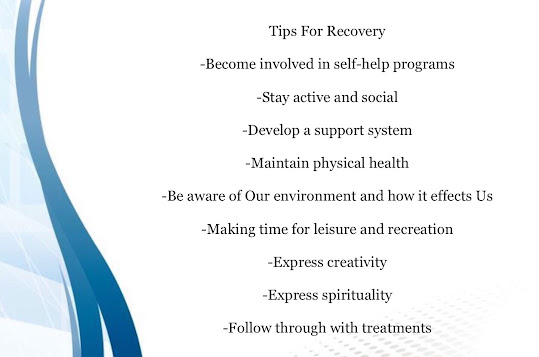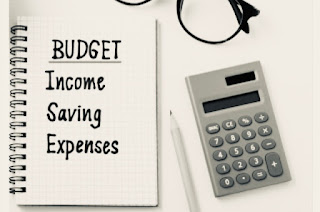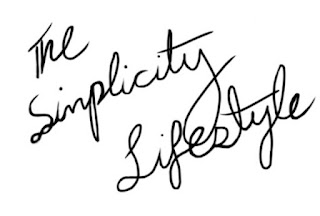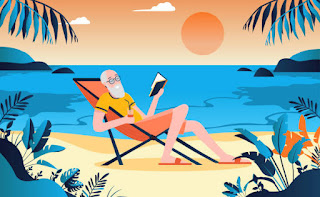Simple Tips For Recovery
“When life becomes too complicated and we feel overwhelmed, it’s often useful just to stand back and remind ourselves of our overall purpose, our overall goal. When faced with a feeling of stagnation and confusion, it may be helpful to take an hour, an afternoon, or even several days to simply reflect on what it is that will truly bring us happiness, and then reset our priorities on the basis of that. This can put our life back in proper context, allow a fresh perspective, and enable us to see which direction to take.”
- “The Art of Happiness” by Dalai Lama
I’ve struggled with addiction most of my life.
I started drinking, smoking, and taking drugs when I was thirteen. In high school I was up to a pack of cigarettes a day. I would binge drink at parties and take most drugs if I could get my hands on them.
This behavior carried over to college and got even worse when I joined my Fraternity.
When I joined the military I was forced to quit everything during basic training.
At first I felt horrible but then I began to feel some of the health benefits sobriety can offer. I had more energy and mental clarity.
After training I got into drinking and smoking cigarettes again, but I quit when I was sent overseas.
Truthfully, quitting was really easy the second time because it was difficult to get cigarettes and alcohol in Iraq, also I didn’t have the physical withdrawals to contend with.
When we returned from Iraq I began drinking heavily. When my alcoholism started to effect my job performance I was ordered to go to Alcoholics Anonymous. Eventually I was Medically discharged from the Army with a diagnosis of Post Traumatic Stress Disorder.
I continued to go back and forth between drinking and sobriety for twelve years.
Five years ago I had back surgery. The surgery was successful in fixing my instability but I was still in considerable chronic pain. After my surgery I was given Opiates for my pain, but Opiates are not supposed to be taken long term. I always took them as my Doctor prescribed, but the pain would always find me. I ended up having really bad side effects.
After a while I was just taking the medication so I wouldn’t feel the withdrawals, it wasn’t helping with my chronic pain.
I became extremely depressed, anxious, and angry. I couldn’t take it anymore.
Luckily, I called the Veteran’s Crisis line and they talked me into going inpatient. While I was inpatient I made the decision to get off the painkillers and only eat and drink things that are healthy and helpful for my body and mind.
Coming off the painkillers was the hardest thing I’ve ever done. Every day I felt extremely sick.
Recovering from addiction isn’t easy. At times it feels like it takes superhuman willpower to not backslide.
If our reason is strong enough, though, we can overcome just about anything!
Nine strategies that helped me in my recovery are:
-Becoming involved in self-help programs
I go to several VA support groups for Addiction, Depression, Anxiety, PTSD, and Chronic Pain. Others in the groups have experienced similar things, so I feel more comfortable talking about my experiences with them. They understand what I’m going through. Sometimes they even have good ideas for solving certain problems.
-Staying active
I find that the more I do to stay active during the day, the better things go. I make a list of things I want to accomplish in my goals journal each day. I list fun things as well as work things. I pace myself and take frequent breaks so I don’t physically or mentally overdo it. Just being active and accomplishing goals helps me to feel more confident and happier.
-Developing a support system
It helps to have friends and family we can do things with and talk things over with. It’s important to work on our relationships and stay in touch with our friends and family. It’s better for us to not rely on just one person.
-Maintaining physical health
When I’ve been eating junk food, not drinking enough water, or not getting my exercise, it makes me feel sluggish, both physically and mentally. It’s important to eat things that are nutritious, drink plenty of water, and exercise at least a little everyday. It really makes All the difference!
-Being aware of our environment and how it effects us
When I was suffering from horrible withdrawals it was very helpful to not have the pain killers available. There is more of a chance for relapse if we are in an environment that encourages relapse. When I quit smoking I stopped hanging out with smokers while they were smoking. When I would stop drinking alcohol I stayed away from the clubs and bars. When I stopped painkillers I had my Wife dispose of them. It’s also very important to control our stress and anxiety, because that can lead to relapse as well. I enjoy my nature walks and mindfulness meditation, so I personally like to be in a more calm and peaceful environment. When things get too hectic and noisy I usually have to excuse myself and do deep breathing exercises to calm my anxiety.
-Making time for leisure and recreation
We can’t just work all the time. We need time for enjoyable activities, too. My Wife and I like to watch shows every night before bed. We take turns picking out what we will watch. We also go for a small walk every morning with each other. I also have a set time every day that I read whatever I’m into at the moment. I’ve always loved reading, so for me it’s fun.
-Expressing creativity
I like to write blogs about living simply. Writing helps me express myself and hopefully my writing adds a little value to my Reader’s lives. I also enjoy making art with my Daughter, who is an amazing artist.
-Expressing spirituality
Some people don’t really need this, but personally I do. I’m not extremely religious but I am very spiritual. I belong to a Methodist Church, but I also find spirituality in meditation and nature. Our Church also provides a lot of support and groups, which has helped in my personal recovery.
-Following through with treatments
Treatments for recovery may include going to peer support programs, talking to a therapist, and possibly taking medication. Treatment plans are very important to our recovery because they allow us to be more proactive and healthy in our lives.
We All want to be happy, healthy, humans
There’s a big difference from living a healthy lifestyle and living a pleasure seeking and pain avoiding lifestyle.
Pleasure is the short term gratification of wants that have long term consequences.
Living The Simplicity Lifestyle isn’t just the clearing away of physical objects in our lives. We can implement minimalism in other areas of our lives as well.
True contentment comes from having healthy habits and healthy relationships.
We all have bodies, and in order for our bodies to operate at optimum levels we need to take care of our bodies. Our bodies need enough exercise, healthy and nutritious food, clean drinking water, and enough sleep and relaxation.
I’ve learned that no matter how powerless we feel or how horrible things seem, we can’t give up!
We have to keep going for ourselves and for our Friends and Loved Ones. Even when it’s scary, even when all of our strength seems gone, we have to keep picking ourselves back up and moving forward, because whatever we’re battling in the moment, it will pass, and we will make it through!
We’ve made it this far!
We have the power to be more intentional with ourselves, and it All starts with us.
Freeing ourselves from the bondage of addiction isn’t easy but it is necessary if we want to live a healthy life!




Comments
Post a Comment